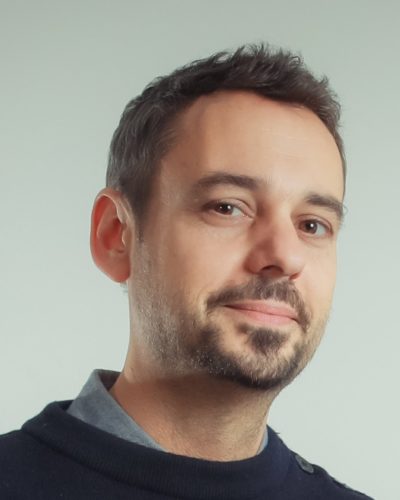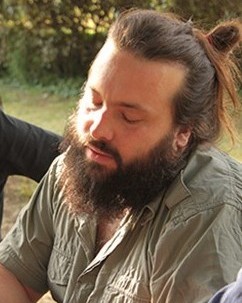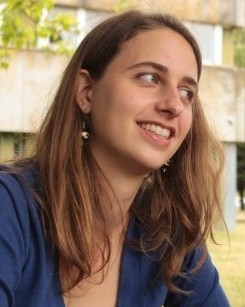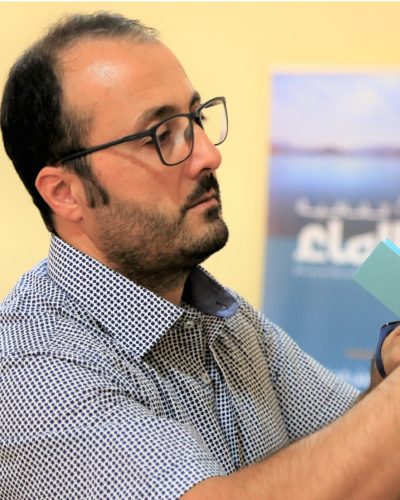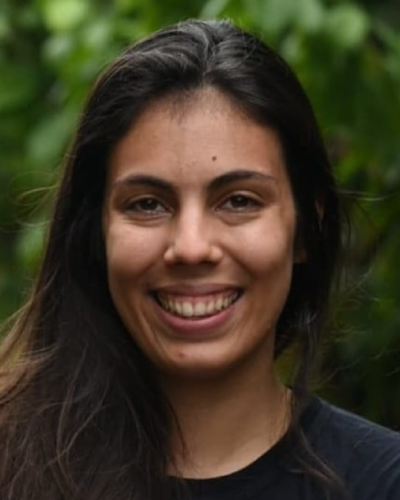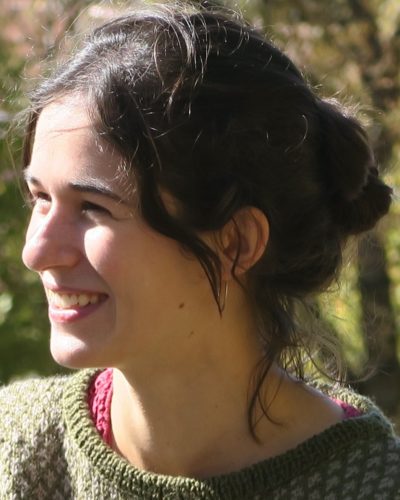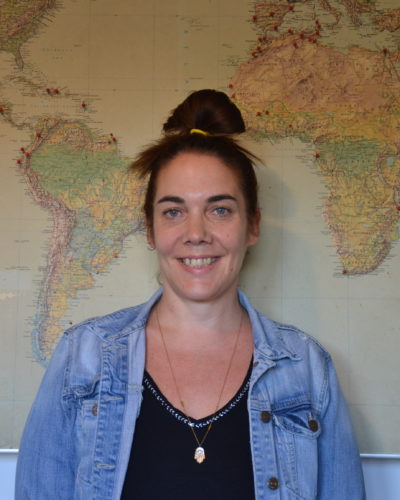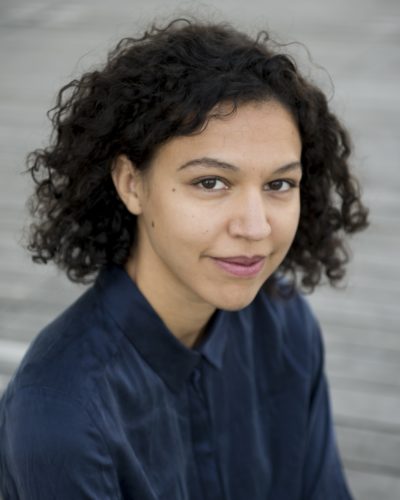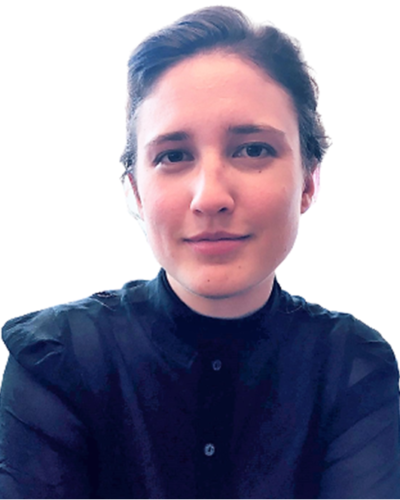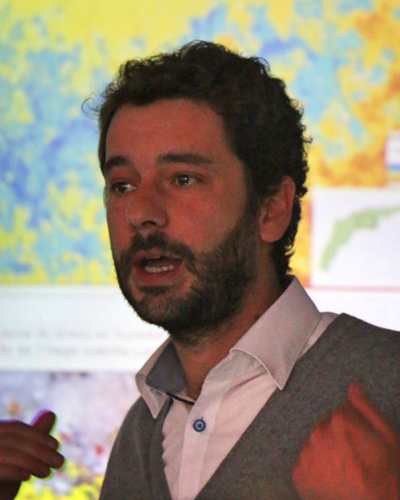Our team
Mathieu Dionnet
mathieu.dionnet[a]lisode.com
Founding partner at Lisode. Mathieu graduated in the biology of populations and ecosystems at the University of Geneva and in ecosystems management at the University Paris 7. He is specialized in using participatory methods in natural resource management, particularly in rural settings. His expertise in designing role playing games and simulation exercises allows him to propose original solutions for collective learning or decision-making processes.
RetourJean-Emmanuel Rougier
jean-emmanuel.rougier[a]lisode.com
Founding partner and co-manager at Lisode. Jean-Emmanuel graduated as an engineer from the Ecole Centrale of Lyon, and also as an environmental engineer and manager from the Ecole des Mines in Paris. He is specialized in designing innovative tools for participatory processes with a special focus on collaborative modeling. His training and professional experience, provide a solid background in multi-stakeholder project management and team coordination. As a result of his involvement in the European research project AquaStress he developed expertise in supporting activities that target integration of scientific expertise with lay knowledge.
RetourElsa Leteurtre
elsa.leteurtre[a]lisode.com
Partner and co-manager at Lisode. Elsa graduated in ecological engineering (EBE – Paris-Sud XI). After working as a learning facilitator – helping the general public access scientific knowledge – she began to focus on public participation in territorial development. Trained in the companion modeling method (ComMod, developed by the research unit GREEN in Cirad) and a member of the ComMod association she is now using and further developing her expertise in LISODE. Elsa is particularly interested in projects where experts, local authorities and community members work together. She has experience in accompanying multi-stakeholder groups in water management, urban planning and natural resource management.
RetourAmar Imache
amar.imache[a]lisode.com
Partner at Lisode. Amar graduated in agronomy (ENSA Algiers, SUPAGRO Montpellier) and continued with a PhD in water management (AgroParisTech Montpellier). For many years he has been working in multidisciplinary research teams working on the irrigated agriculture in Maghreb, particularly in Algeria. He has experience in participatory methods (facilitation of participatory workshops, scenario building) and in socio-economic analysis of agricultural practice (water management and irrigation). He participated in projects in France, Spain, Portugal, Jordan, Egypt, Lebanon, Mauritania, Morocco, Algeria and Tunisia (e.g. WADEMED, SIRMA, Groundwater ARNEA, PAP-AGIR,…).
RetourEmmanuelle Espuche
emmanuelle.espuche[a]lisode.com
Junior consultant in Lisode, Emmanuelle holds a master degree in social water management (Montpellier University, SUPAGRO, Agroparistech Montpellier). She has gained sound and extensive knowledge about the multiple actors involved in water and environment management in France by working for various structures: Hunting Federation, Environmental Education Association, River Bassin Committee, Engineering Consultant. Specialized in public policies for managing aquatic environments and flood risk, she also has some experience in scientific animation and awareness-raising about environmental issues.
RetourJulie Beaumont
julie.beaumont[a]lisode.com
With a degree in Logistics and Transport, Julie began her career as a Branch Assistant in an international transport company for over 10 years. She then moved on to a family-run company: a consulting firm specializing in General Engineering, Expertise and Architects, where she spent several years as Executive Assistant. Julie joined the Lisode team in March 2023, and has been assisting us with all administrative, accounting and financial tasks ever since. She is caring, orderly in her work and very sensitive in life in general.
RetourMarina Gentle
marina.gentle[a]lisode.com
Junior consultant and project officer at Lisode, Marina holds a dual degree in philosophy and social sciences (Sorbonne Paris IV, Sciences Po Paris) and a masters from Sciences Po Paris Urban School, « Governing the Large Metropolis ». Her masters gave her the opportunity to study the social and economic implications of managing natural resources and implementing infrastructures in large cities in a variety of cultural and institutional contexts. Marina has a 5-year experience in developing and evaluating multistakeholder projects in different sectors (culture, social inclusion, public innovation and citizen participation).
RetourLorraine Champagne de Labriolle
Lorraine is a junior consultant at Lisode with legal training in comparative law, Rights of Nature and theory of the Commons (University of Essex, Paris Ouest Naterre La Défense, ENS, EHESS). She has acquired a solid background in water management issues in her previous positions as parliamentary assistant to the President of the Investigatory Commission into the control of private interests over water and its consequences, and at the Coordination Eau Ile-de-France where she led the Open University on Water Commons, as well as workshops on water management and outreach. Lorraine is particularly interested in viewing water governance as a prism into local issues and offering appropriately tailored support.
RetourMarc Haering
marc.haering[a]lisode.com
Independent associated consultant to Lisode, Marc holds a degree in Hydrology (University of Freiburg, Germany) and a Double Master’s degree in Integrated Water Resources Management (University of Applied Sciences, Cologne and University of Jordan, Amman). He has more than 10 years of experience in the field of integrated planning and management of water resources from a research, education and development cooperation perspective. He focusses on water issues in dryland environments, with a particular interest in institutional aspects and cross-sectoral coordination, stakeholder dialogue and multi-stakeholder approaches, as well as communication and public participation.
Retour